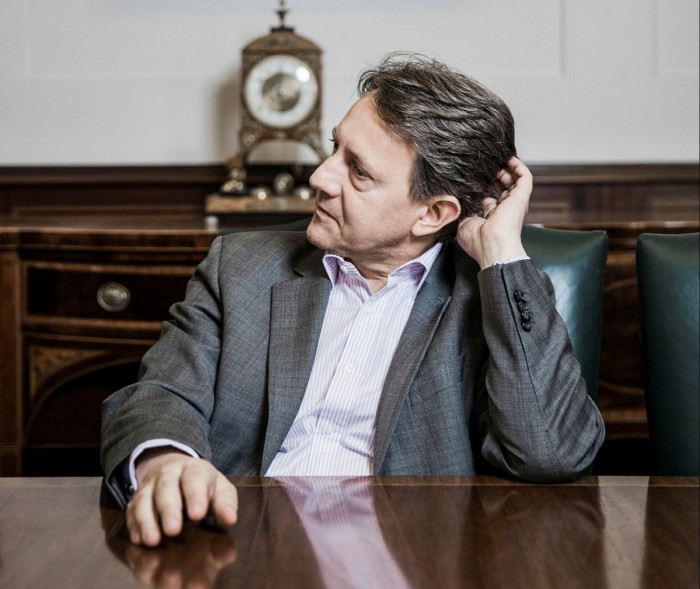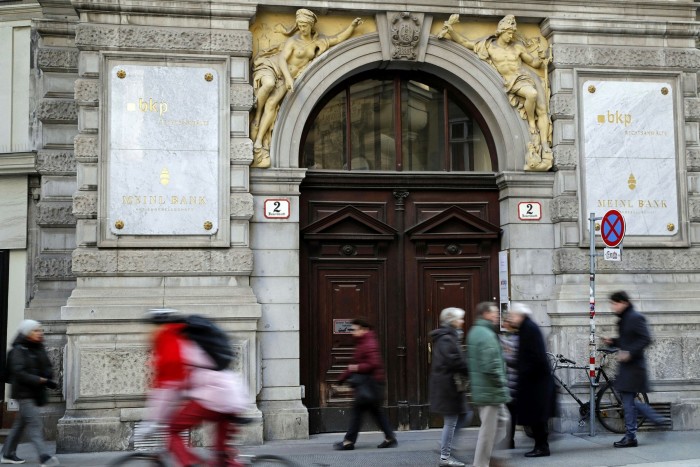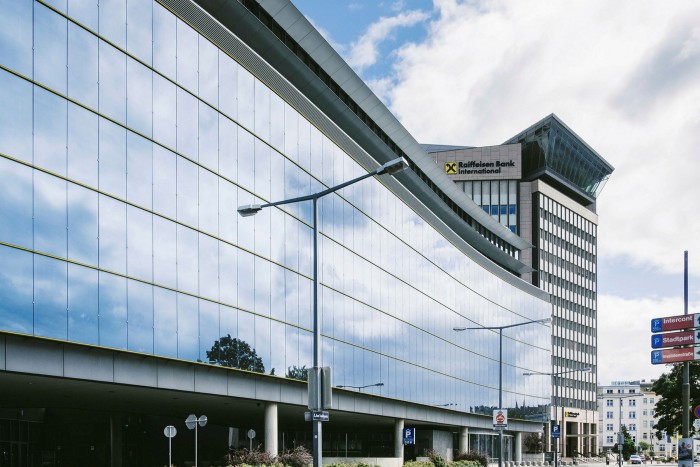Vienna’s banking industry struggles to shake off dirty money scandals

Roula Khalaf, Editor of the FT, selects her favourite stories in this weekly newsletter.
Minutes after landing a private jet at Biggin Hill airfield, just south of London, in May, Peter Weinzierl was arrested on money laundering charges.
The former chief executive of Bank Meinl, one of Austria’s best-known financial institutions, was denied bail. Prosecutors in the US had sought his extradition on charges related to his alleged involvement in a corruption scandal that was exposed in 2017: a global bribery and fraud scheme that attempted to defraud the Brazilian government of more than $100m in taxes.
The US Department of Justice alleged that Weinzierl, along with another Austrian, Alexander Waldstein — also a former officer of the bank — conspired with Brazilian construction group Odebrecht to move $170m through Meinl to offshore slush fund accounts. These were used to pay bribes to public officials.
The dramatic arrest of Weinzierl was a heavy blow to Vienna’s banking industry, which has tried in recent years to shed its image as a system prone to exploitation by international money launderers. A succession of scandals involving Austria’s banks has raised questions about how serious the country is about tackling corruption and disrupting the global flow of dirty money.
“We are very angry about this former bank [Meinl] which, thank God, no longer exists,” says Franz Rudorfer, managing director of the bank and insurance division at the Austrian Federal Economic Chamber (WKO), a body representing the country’s business sector.
“Meinl Bank doesn’t stand for the standards across Austria’s banks,” he adds. “Cases like this are very, very bad — they hit our reputation.”

Bank Meinl was founded in 1923 and grew into a business empire with interests and investments spanning central and eastern Europe. But the Odebrecht corruption scandal was just the latest in a series of troubles surrounding the institution in recent years.
In 2016, Ukrainian and Austrian authorities began investigating the bank for its alleged role in helping to launder tens of millions of euros on behalf of individuals and entities connected with former Ukraine president Viktor Yanukovich.
Amid ongoing money laundering allegations, the bank rebranded as Anglo-Austrian Bank in 2019 and eventually filed for insolvency last year after the European Central Bank terminated its banking licence.
The recent scandals surrounding Meinl and other Austrian banks have led to pressure from politicians, regulators and international investors for the country’s lenders to show they are taking anti-money laundering seriously.
“It is a huge reputational issue,” says Gabor Kemeny, an analyst who focuses on Austrian banks at Autonomous Research in London. “Any money-laundering scandal leads to a rapid loss of confidence, which can affect share prices. Even if share prices recover, shareholders still have these issues in the back of their minds.”
Raiffeisen Bank International, one of Austria’s biggest lenders, is another that has been tarred by allegations of lax anti-money laundering controls.
The Austrian Financial Market Authority began an investigation into the bank after it was cited in the 2016 Panama Papers leak, which revealed a network of offshore companies in tax havens. The regulator later fined Raiffeisen €2.7m for poor money-laundering prevention methods, but the fine was overturned by Austria’s supreme court.
In 2019, Raiffeisen was also accused by the prominent Kremlin critic Bill Browder, an anti-money laundering activist and investor, of handling more than $634m in dirty money from Russian criminals. But Austria’s Public Prosecutor’s Office decided to take no action following Browder’s complaint.
Christoph Lehner, head of group compliance at Raiffeisen, says the bank has taken several steps to address money laundering. Over the past two years, it has systematically reappraised its 17.7m clients and terminated hundreds of relationships. It has also exited 25 out of the 126 countries it operated in.
“This was very important for the management board after the Panama Papers, to really go through all corporate customers and financial institution [relationships] throughout the entire group,” Lehner says.
Even so, Kemeny adds: “Raiffeisen being implicated in the Panama Papers comes up frequently in discussions I have with the bank’s investors.”

Another of Vienna’s historic lenders, Bank Winter, which traces its roots back to 1892, is embroiled in a lawsuit filed in 2017 that accuses the bank of helping launder $175m out of Russia’s National Bank Trust on behalf of its former management, into a labyrinth of offshore holding companies.
Bank Winter is contesting the action and did not respond to requests for comment.
In response to these scandals, the WKO began working on an anti-money laundering strategy to improve co-operation and information sharing between banks within Austria and internationally.
The organisation sent a set of proposals to Austria’s finance minister and the heads of supervisory authorities in March, with a view to implementing the policies in the coming years.
Among the proposals were uniform standards for signing up customers across the EU, allowing fully automated and digital processes. The WKO has also called for data sharing between Austrian banks to monitor transactions.
Separately, the European Commission plans to set up a new cross-border anti-money laundering authority with direct supervisory powers by 2024.
Several Austrian banks, including Raiffeisen, have also begun introducing technology such as artificial intelligence and machine learning to help them identify and stem flows of dirty money.
However, Meagan Birch, London-based global head of anti-money laundering at ComplyAdvantage, a technology provider, says that while such tools can be effective, they will have little impact in Austria unless the country does more to dismantle its bank secrecy laws.
“This lack of transparency is affecting Austria’s ability to confront these scandals — it has made Austria extremely attractive for money launderers,” she says. “They’re slowly turning the ship, but it’s a bit like trying to unblock the Suez Canal.”

Comments